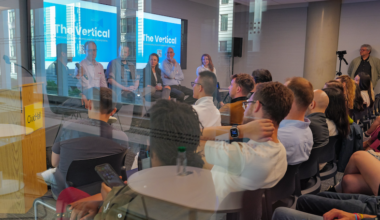In the startup world few concepts have been as intriguing as Arrow’s information paradox. Nobel laureate Kenneth Arrow posed these questions: How can you accurately price information without first revealing it? And once revealed, why would anyone pay for it? For startups in their nascent stages and vulnerable positions, understanding and navigating this paradox becomes critical.
Understanding the Arrow Information Paradox
The Arrow information paradox is a fundamental dilemma: unlike tangible goods, information loses its exclusivity upon sharing. Imagine that you’re a startup with a groundbreaking algorithm. To sell or license it, you must divulge what makes it unique. Yet, the moment those details are disclosed potential buyers or investors, now in the know, lose any incentive to purchase or invest.
Essentially, you are caught in a Catch-22 situation. Provide too few details and the information’s value remains ambiguous; disclose too much and its value might diminish to the point of worthlessness.
This precarious balance, teetering between underselling and oversharing, is the essence of the information paradox. For startups and innovators, it’s a difficult dance to master.
What about Non-Disclosure Agreements (NDAs)? Well, very few people will ever sign an NDA. And even if you find someone who does, while offering a symbolic layer of protection, NDA’s are very porous. Breaches, intentional or not, still occur – and you have very little recourse when they do.
Securing investor funding faces the same challenge. You must inspire confidence, showcase potential for growth, and prove your venture’s viability. But how much should you reveal in a pitch? Too much and your unique proposition could be at risk; too little and you may fail to convince.
This delicate act is further complicated when you court multiple investors, each potentially with their agendas or ties to competitors.
Staged Access
A common tool to mitigate this conflict is something referred to as “staged access.” It is the idea of providing information in phases, often pegged to investment milestones or increasing levels of purchasing commitment.
Revealing information in carefully outlined and predetermined stages allows startups to manage risks, ensuring that as investors or customers gain more insight into the business, they’re also deepening their engagement and trust.
In fact, this “Arrow Plan” is something that I recommend to draft and agree to internally before any pitching starts. Develop a communications strategy that discerns how to tantalizingly hint at your value without laying all the cards on the table.
Navigated The Arrow Information Paradox
Let’s delve into how some of our favorite startups have navigated the information paradox:
Airbnb: By leveraging host and guest stories, Airbnb emphasized the communal and transformative experience that their platform offered. This way, they could demonstrate the concept’s value without unveiling the specifics of their algorithm or growth strategy.
Palantir: Palantir kept much of its operations under wraps, positioning itself as a premier Big Data company. They shared specific use-cases of their software’s application, creating a sense of necessity without giving away its detailed workings.
Dropbox: By using a demo video as a simple yet effective way to show the value of its product to potential users, without revealing the intricate workings of the software, the company showcased functionality and the problem solved.
23andMe: The genetic testing startup showcased the value proposition of gaining insights into ancestry and health. However, they were discreet about the larger roadmap that potentially included partnerships with pharmaceutical companies or the specifics of their data handling and protection mechanisms.
Lessons for Immigrant Founders
Navigating the Arrow information paradox is a quintessential rite of passage for startup founders. As far as immigrant entrepreneurs, who already face unique challenges in unfamiliar business landscapes, mastering this delicate balance becomes even more imperative.
My recommendation is to develop a staged access communications plan, or what I call the “Arrow Plan,” which focuses on showcasing traction or value and not the underlying business process or technology, with phased revelations tied to engagement levels.
Companies like Airbnb, Palantir, and Dropbox each found their own way to hint at their value without unveiling their secrets. As an immigrant founder, you bring a diverse perspective, innovative ideas, and a fresh approach.
Leverage these strengths and study the tactics of successful startups. Embrace the art of storytelling, as Airbnb did, or showcase functionality without divulging intricacies, like Dropbox.
Remember, the key is not just what you share, but how and when you share it. In a global marketplace, where information travels faster than light, safeguarding your startup’s secrets while effectively marketing its potential, becomes your winning move.








